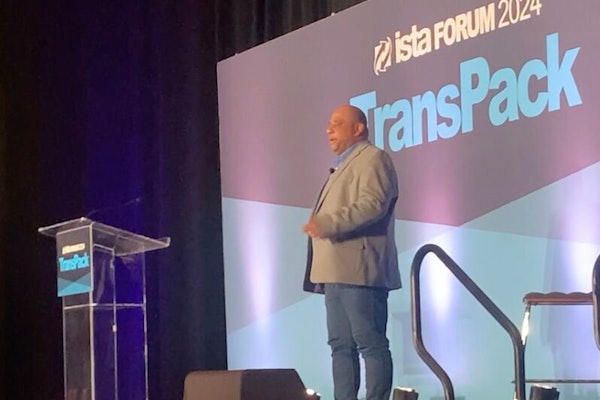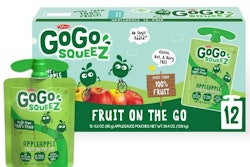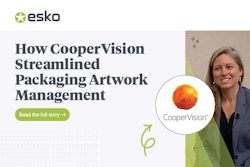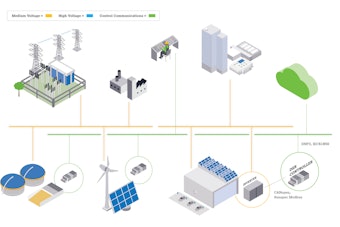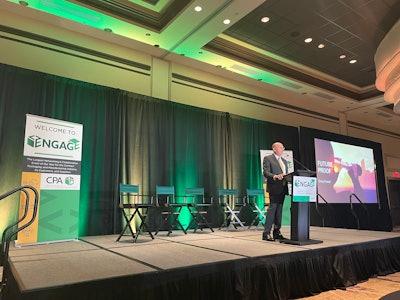
All brands and consumer packaged goods (CPG) companies need dependable contract service partners to lighten the load and to rely on in times of innovative testing and looming deadlines. At Contract Packaging Association’s ENGAGE: The Contract Packaging and Manufacturing Experience, Reynolds Consumer Products (Reynolds) laid out how to choose and develop a lasting relationship with a reliable contract packaging (CP) or contract manufacturing (CM) partner.
Reynolds has about 60 contract manufacturing partners spread out around the world, the majority of which are based in North America. Doug Powell, vice president of global commercialization at Reynolds Consumer Products, emphasized that the strength of the company’s relationship with each partner matters. Many of those relationships that have persisted through the years have grown more beneficial to both sides as Powell and his team have nourished the relationships and taken ideas and solutions from the contract manufacturers to Reynolds to solve the problems and challenges Reynolds has faced.
A partner throughout successes and failures
Powell cited one particular Reynolds contract manufacturing partner with whom the relationship has been maintained since both Reynolds and the contract service were young and budding businesses.
“The annual value of the relationship we have together, it's worth millions of dollars. And back when we started this journey, neither organization knew the future. But we both adapted well. And this manufacturing partner was quick to recognize the opportunities with us and move rapidly to meet our needs. Over the years our relationship has evolved into many new product launches and many new product deaths,” said Powell.
In the CPG landscape, Powell noted, 90% of new product launches fail. But the 10% that succeed often have great success. Both the failed and successful products prompted conversation about the next big thing and helped shape the brand and its contract service partners into the companies they are today. Powell said driving that conversation and strengthening relationships are the purpose of failed product launches.
Powell further explained that some product and CP/CM relationships experience overnight success after a few years of struggle. Some successes only blossom after they have been through challenges and failures. He shared the journey of Reynold’s slow-cooker plastic liners that were by all accounts a failed product and somehow miraculously made it to launch though marketing attempts could not entice consumers to purchase. But just as the brand was going to pull the plug, the president of Reynolds was replaced and a different new product launch, Fun Shapes, failed even worse.
 | Lazy Magnolia Blooms After Automation Influx |
“The [Fun Shapes] product’s problems consumed the President's attention as well as everyone else’s. The slow-cooker liners continued to grow slowly in the background. Then one day someone in our company took note of this product that was growing well and generating really good profits, it was a three-year overnight successful new product. And they are still doing well today almost 20 years later,” said Powell.
Powell listed the lessons this experience taught Reynolds:
- What a company might think is true often isn’t—successes and failures come from unexpected locations.
- Be ready to pivot once the information changes.
- Recognize and take advantage of serendipitous events.
- Overnight successes often take years. An organization must develop patience or risk killing products and relationships that may turn out to be successful.
A partner who can ride with and against the current
The world has been through many challenges in recent years, such as the COVID-19 pandemic and the Russia-Ukraine war. New regulations, social compliance, bans, consumer trends…there’s no end to the number of challenges that can impact industry. Predicting the future is no easy feat, but Powell explained that we don’t need to be able to predict it.
“But we do have to be ready for the changes that the future will bring both in terms of challenge and opportunity. We're predicting how certain people and companies will swim against the current. We're not predicting the fluctuation of the current,” he said.
Powell and his team use this mentality when looking for contract manufacturing partners. They put the focus on skill and the ability to ride the current in times of success and ride against it during challenges. He said to face the difficult times that will surely come in the future, a brand must align itself with partners who are strong swimmers. Powell’s team may visit potential contract manufacturers multiple times over several years to determine whether they meet the potential Reynolds sees in them before signing a contract.
An example of such potential meeting fruition began with a contract manufacturer who Reynolds had done a small amount of business with that asked the CPG what it could do to win more business. Reynolds’ response was to build a cleanroom, which the CM did. The CM’s proactiveness resulted in a substantial amount of business from Reynolds from then on. Reynolds has had multiple of such experiences where the CM listens to its feedback and implements it, showing their desire and ability to swim against the current.
 | What’s Your Game? Building a Contractual Relationship |




